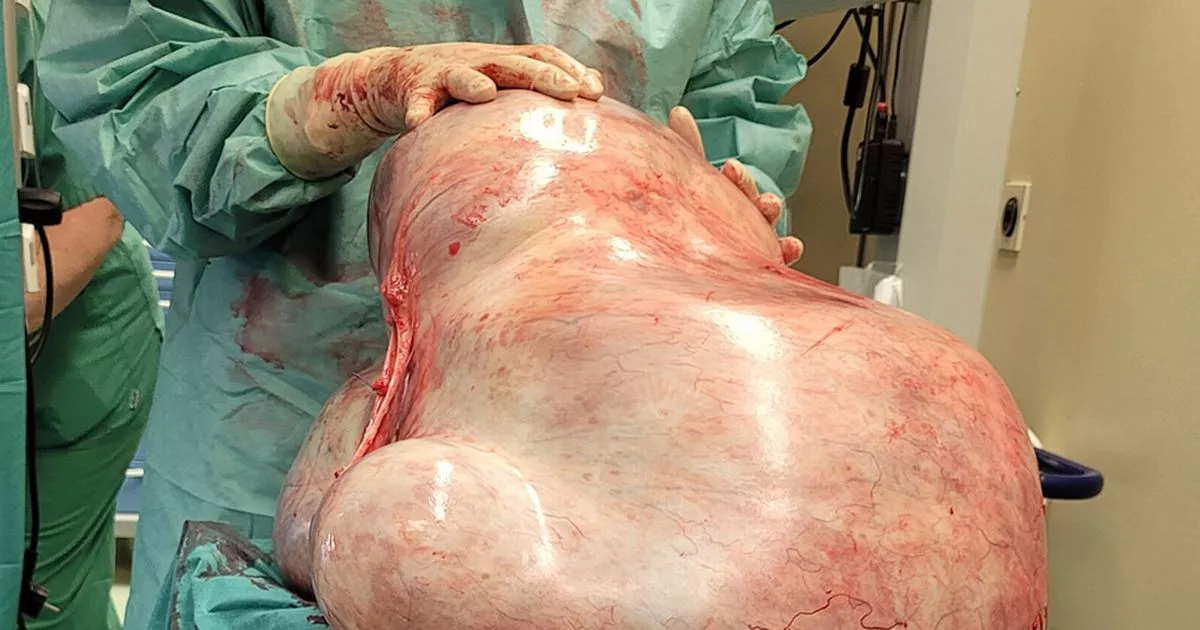Woman saw doctor with shortness of breath and had 'extremely unusual' 32kg tumour removed – The Mirror
The patient had a long and gruelling procedure to remove the giant tumour from her ovary, after it was allowed to slowly grow without her even knowing it was there
A woman had a giant 32kg tumour removed from her ovary, after developing shortness of breath and a general feeling of heaviness.
The 24-year-old patient spoke to a doctor after developing a number of unusual symptoms – including weight loss. It was later revealed that she had an oversized growth in her ovary, which had also attached to her intestine and organ connective tissues.
Doctors decided to operate straight away, as she could develop more serious health problems if the tumour was left alone. After a long and gruelling procedure, doctors at the University Women's Clinic in Magdeburg, Germany, successfully removed the growth.
Dr Atanas Ignatov, who worked on the case, said the growth was a cystadenoma, which is a type of benign tumour that develops from ovarian tissues.
He said: “A tumour of this size is extremely unusual, as women usually seek medical help at an early stage. The patient was afraid of the operation and therefore suppressed the tumour.
“I would like to emphasise that affected women should not be afraid. They are in the best hands with us. Our clinic is geared towards providing highly specialised medical assistance. Early detection is the key to successful treatment and we support our patients in this important aspect of preventive healthcare.”
The patient didn't have any complications after the surgery, and she was even allowed to leave hospital a week later.
A cystadenoma is incredibly rare, as they're usually spotted during scans for something else. In this case, the tumour was allowed to grow over a long period of time without being noticed.
The prognosis is usually excellent, but on rarer occasions, it can lead to ovarian torsion or a cyst rupture.
In most cases, ovarian cysts disappear by themselves within a few months, and a follow-up ultrasound should confirm that. They also shouldn't prevent you from getting pregnant in later life, although it can make it harder to conceive.
Sign up to FREE email alerts with news to brighten your day




